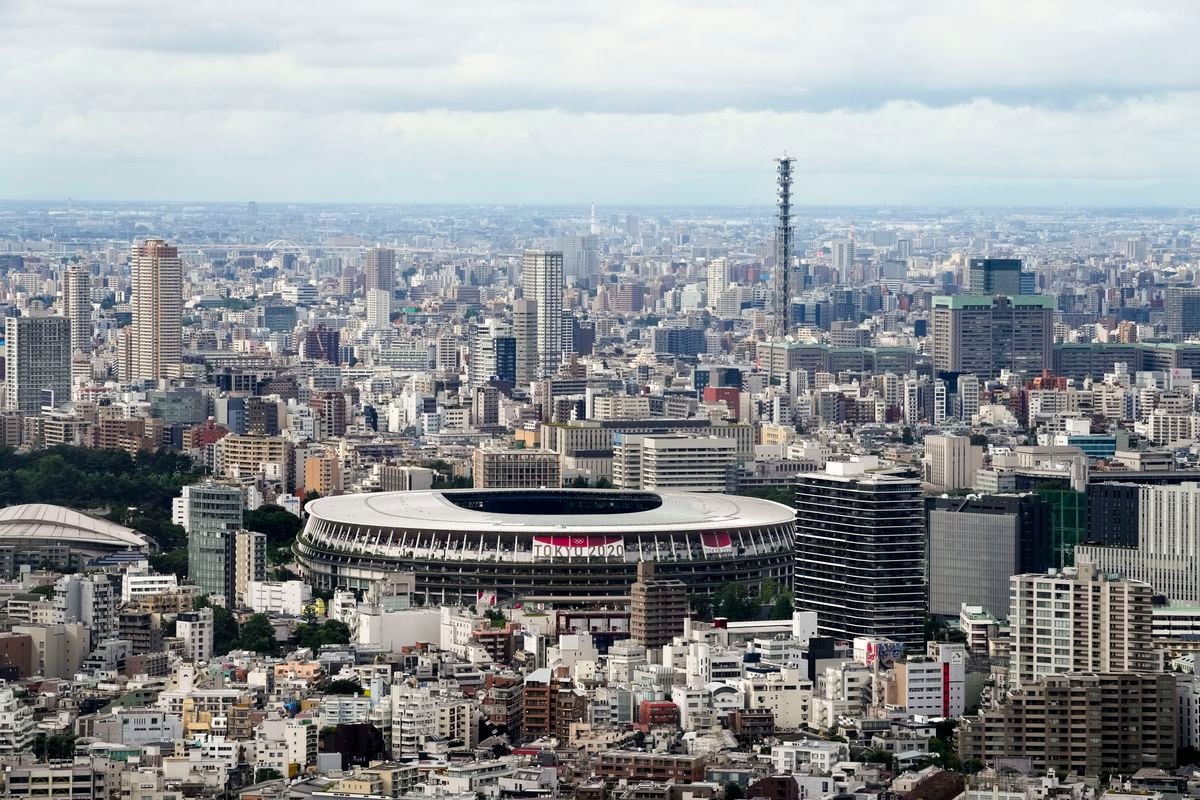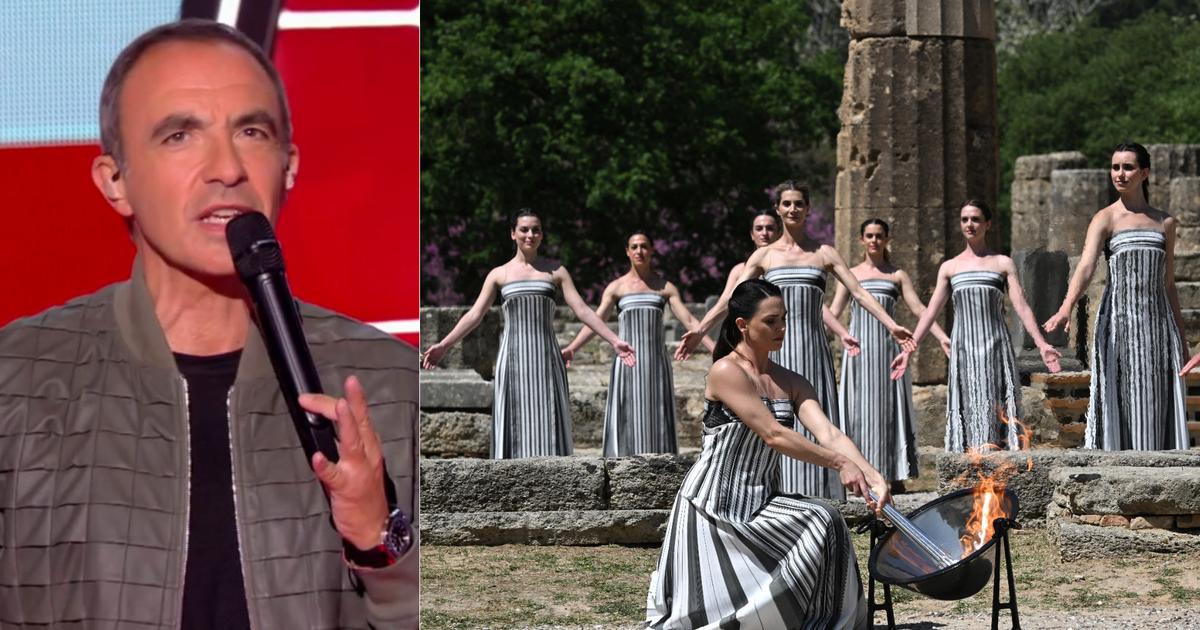Of the extensive list of bad omens that flew over the Tokyo 2020 Olympic Games, no one can be surprised by the economic failure, which threatened from the very opening day.
The pandemic wiped out the promises Japanese leaders made in 2013, when the nation's capital prevailed in the race to win the venue for the 32nd Olympics of the modern era.
They will not go down in the annals of Olympism - as the President of the International Olympic Committee (IOC), Thomas Bach, had dreamed - as the "Recovery Games" for the host country, but will be remembered as the first postponed, with no audience in the stands and as the most expensive to date.
More information
What is the economic effect of hosting the Games?
It can be a stepping stone, but also a poisoned inheritance
Tokyo 2020: a winless Games for the Japanese economy
The final cost has skyrocketed to 1.64 trillion yen (about 12,712 million euros).
The outbreak of the global health crisis and the postponement of the event represented astronomical losses, close to 2,300 million euros, a coup de grace for the accounts of the contest.
These exorbitant figures, however, may be far from the total cost: a government audit conducted before the pandemic outbreak had already set the real price at 23 billion euros.
Most of this barrage of millions will come from taxpayer money.
The IOC has pledged to contribute just over € 1.1 billion.
When the Tokyo candidacy was presented eight years ago that dethroned the then most important rivals (Istanbul and Madrid), the initial budget was around 800,000 million yen (about 6,180 million euros).
The ambition was then to keep the numbers within a reasonable limit, as proved by the rejection of the late Zaha Hadid, a renowned Anglo-Iraqi architect, who presented one of her many futuristic designs for the stadium that would host the opening and closing ceremonies.
The dichotomy between spending forecasts and money ultimately disbursed is not unique to Tokyo.
According to a study by the University of Oxford, all the Games since Rome 1960 have had an average cost overrun of 172%.
Those just completed exceed the initial budget by between 111% and 244%.
To nominate himself in 2013, then-Prime Minister Shinzo Abe drew on the feeling of nostalgia that the 1964 Games could evoke, which showed Japan reborn as a Phoenix after the devastating World War II, demonstrating to the international community its new technological and economic power.
On this occasion, the campaign, in an obvious analogy, revolved around the potential of a country that would re-emerge after the triple catastrophe of Fukushima in 2011.
According to the first official estimates, the celebration of the Games would generate some two million jobs and profits of around 110,000 million euros in investment, tourism and consumption;
an encouraging prediction that the coronavirus has thrown overboard.
The potential boost from tourism represented one of the pillars of the candidacy. In the 2010s, foreign tourist visits to Japan quadrupled, exceeding 30 million annual visitors. In 2019 alone, they spent more than 37,198 million euros on hotels, restaurants, shops and other services, according to Reuters. But much of the expected economic benefits that the event would bring vanished in March, when the organizers decided to ban the presence of foreign public in the stands. The next jug of cold water would arrive two weeks before the official start, when the Japanese fans were also denied entry. The sad conclusion was that despite the trillions of yen invested in hosting the event, Tokyo ended up watching the competitions like any other city in the world:across the screen.
According to the
Tokyo
think-tank
Nomura Research Institute, foreign tourists spend much more on these athletic gatherings than the local population. Originally, the Games were expected to generate 1,606 million euros in benefits from the presence of the public, of which 1,200 million (around 70% of the total) would be disbursed by the million overseas spectators who were to land in Japan, and that you would spend an average of 1,160 euros during your stay.
Before the event was postponed, 4.48 million tickets had been sold, representing 696 million euros in revenue, an amount that evaporated to zero. Reuters adds that when foreign fans were banned, the organizers reported that they planned to reimburse the cost of 600,000 tickets, although they did not specify how much the losses amounted.
And with the end of the Games comes the challenge faced by the other cities that have hosted it: to prevent the infrastructures built with taxpayers' money from becoming a financial burden.
The facility of greatest concern is the renovated National Stadium, which hosted the opening and closing ceremonies, a 1.3 billion-euro venue with a capacity for 68,000 spectators and whose maintenance cost is estimated at 20 million euros per year.
As a soothing effect, after two weeks of competition, the unpopularity of the event diminished as the host delegation signed its best result in the Games: third place in the medal table, only surpassed by the United States and China.
The announced chronicle of the economic failure is tempered by the organizational success of the event, despite the fact that the millions of fans have a bitter taste left: the eternal question of what would have happened to these Games in normal situations. All of them will now put their hopes in Paris 2024. They will hope to get away from the memory of celebrations shared only by a few athletes and members of the delegations that resonate in facilities lulled by an almost sepulchral silence.








/cloudfront-eu-central-1.images.arcpublishing.com/prisa/HUQRVUYDQVBNVAEHMCGNYB5QNU.jpg)
